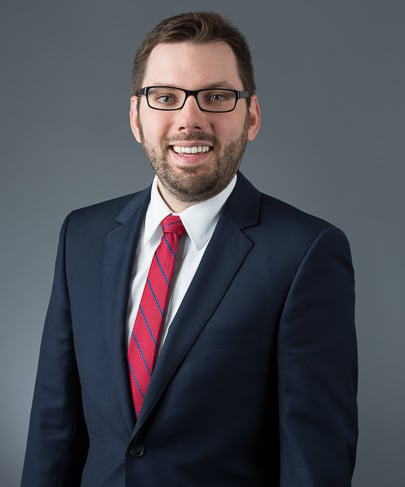IRS Issues Guidance on the CAA Changes for Flexible Spending Accounts: Good News for Participants but Additional Administrative Challenges for Plan Sponsors
DOWNLOAD PDF- Moore, Cynthia A.
- Industry Alerts
Click “Subscribe Now” to get attorney insights on the latest developments in a range of services and industries.
The IRS recently issued Notice 2021-15 to provide guidance on certain provisions of the Consolidated Appropriations Act of 2020 (the "CAA") affecting the administration of flexible spending accounts ("FSAs"). The CAA changes are intended to address the reality that many participants were not able to incur a sufficient amount of health care or dependent care expenses in 2020 to zero out their FSAs by the end of the 2020 plan year, and provides various alternatives to allow participants to access those funds. The changes described in this Client Alert are discretionary and not mandatory; employers may choose to adopt some, all or none of them.
Expanded Right to Carry Over Account Balance
Prior to the CAA changes, health care FSAs could allow a participant to carry over up to $550 of his/her unused plan year-end balance to the next plan year. The balance carried over could be used to reimburse expenses incurred at any time in the following plan year. Carryovers were not permitted in dependent care FSAs. If a health FSA adopted the grace period to allow participants to be reimbursed from the prior year balance during the first 2 ½ months of the next plan year, the health FSA was not allowed to use the carryover. In other words, a plan sponsor had to choose between the carryover or the grace period in its health FSA plan.
Under the CAA, for plan years ending in 2020 and 2021, a health care FSA and a dependent care FSA may be amended to allow a participant to carry over his/her entire remaining account balance to the next plan year. This includes salary reduction contributions made for the plan year together with any amount carried over from the prior plan year (i.e., up to $3,300 in 2020 could be carried over to the 2021 plan year - $2,750 in salary reduction contributions plus $550 in amounts carried over from the 2019 plan year).
A health FSA or a dependent care FSA that currently includes the grace period may adopt the unlimited carryover for the 2020 and 2021 plan years, notwithstanding the usual prohibition of including both a grace period and a carryover in a health FSA. Beginning in the 2022 plan year, plan sponsors will again need to choose between the carryover and the grace period in a health FSA plan.
Extended Grace Period
Prior to the CAA changes, an employer's health FSA or dependent care FSA was allowed to include a grace period. If the FSA included the grace period, a participant could apply his/her entire unused year-end balance to expenses incurred in the first 2 ½ months of the following plan year. The grace period rules were made available by the IRS beginning in 2005 and were intended to ameliorate the impact of the Internal Revenue Code Section 125 (“Section 125”) "use it or lose it" rules that apply to FSAs.
Under the CAA, an employer may amend its health FSA or dependent care FSA to adopt a 12-month grace period following the plan years ending in 2020 or 2021 with respect to unused contributions. In other words, if the 12-month grace period is adopted for an FSA with a plan year ending December 31, 2020, a participant could be reimbursed for any expenses incurred in 2021 from his/her unused balance as of December 31, 2020.
The extended grace period can be adopted by an FSA that currently uses the 2 ½ month grace period, by a health FSA that currently uses the $550 carryover, or by an FSA that currently has neither a carryover nor a grace period.
Unlimited Carryover or Extended Grace Period?
The CAA changes giving employers the opportunity to adopt the unlimited carryover or the extended grace period for the 2020 and 2021 plan years are discretionary and employers are not required to adopt either rule. A plan sponsor can amend its health FSA or dependent care FSA to add the unlimited carryover or the extended grace period, or can vary the amendments by plan. For example, an employer could adopt the unlimited carryover for its health FSA and the extended grace period for its dependent care FSA. However, an employer may not adopt both the unlimited carryover and the extended grace period for the same FSA. As a practical matter, either option should allow employees to access their unused 2020 or 2021 account balance.
Special Rule for Former Participants in a Health FSA
The Section 125 proposed regulations allow a participant to "spend down" his/her remaining account balance in a dependent care FSA if an employee ceases to be a participant midway through the plan year. This rule was proposed because, unlike health FSAs, there is no right to COBRA continuation coverage for a dependent care FSA.
The CAA adopts a similar rule for a participant in a health FSA. A participant who terminates participation in a health FSA during the 2020 or 2021 calendar years may continue to submit claims through the end of the plan year in which participation ceased (including any grace period). This option can be offered to a participant who ceases participation due to termination of employment, change in employment status, or due to a new election made during the 2020 or 2021 calendar years. An employer may limit the amounts that can be used by a former participant to the amount of salary reduction contributions that the employee had made from the beginning of the plan year to the date participation ceased. In other words, an employer is not required to make the full elected annual amount available to former participant – only the amount of his/her unused salary reduction contributions.
The special "spend down" rule for heath FSAs does not override a participant's right to be offered COBRA continuation coverage in the event of a qualifying event.
Example: An employee makes a health FSA election of $2,400 for the plan year beginning January 1, 2021. The employee terminates employment March 1, 2021 after making $400 in salary reduction contributions and submitting no claims for reimbursement. The employee must be offered the choice of (a) accessing the $400 for any expenses incurred during 2021 (or a related grace period) under the CAA special "spend down" rule or (b) electing COBRA, paying monthly COBRA premiums on an after-tax basis of $204, and having access to the full $2,400 balance.
Impact on HSA Eligibility
Participating in a general-purpose health FSA makes an employee ineligible to contribute to an HSA. Employees may have enrolled in a high deductible health plan (HDHP) for 2021 and planned on making HSA contributions before knowing that his/her employer is adopting the unlimited carryover or extended grace period for its health FSA, which could make the employee ineligible to make HSA contributions.
Notice 2021-15 offers a few solutions to this problem:
- The employer can provide in its health FSA that amounts carried over or subject to the extended grace period for a participant enrolled in an HDHP will automatically be credited to a limited purpose (HSA-compatible) health FSA.
- The employer can amend its plan to allow employees, on an employee-by-employee basis, to opt-out of the unlimited carryover or the extended grace period in order to preserve HSA eligibility.
Age Limit Relief for a Dependent Care FSA
Normally, a child must be under age 13 in order for a parent to be reimbursed from a dependent care FSA for childcare expenses. The CAA provides that an employer may increase the age limit from age 13 to age 14 in two situations:
(1) for the plan year where the open enrollment period ended on or before January 31, 2020 (i.e., the 2020 plan year for a calendar year plan); and
(2) in the immediately following plan year, with respect to any unused balance from the prior plan year.
Example: Participant Susie enrolled in the dependent care FSA for the plan year beginning January 1, 2020, and elected salary reduction contributions of $2,500. Her child turned age 13 on September 30, 2020. If the employer's plan is amended to increase the age limit to 14 in the above two situations, Susie can submit dependent care claims incurred through December 31, 2020. Further, if she has an unused balance on December 31, 2020, Susie can submit clams incurred through September 29, 2021 to that unused balance. She cannot be reimbursed for claims incurred on or after September 30, 2021, when her child reaches age 14.
This special age relief rule is separate from the general carryover and extended grace period rules described above. As with those provisions, the age relief rule is discretionary and an employer can choose whether or not to adopt it.
Mid-Year Changes
Under the Section 125 rules, once a participant has made an election for a plan year, that election is irrevocable during the plan year unless the participant experiences a change in status.
Under the CAA and Notice 2021-15, a Section 125 plan can be amended to allow a participant to make changes to his/her health FSA or dependent care FSA during the plan year ending in 2021, even if the participant has not had a change in status. Participants can take any of the following actions, on a prospective basis, if permitted by the Section 125 plan:
- Enroll;
- Disenroll; or
- Increase or decrease contributions.
Employers have considerable flexibility in implementing this provision.
- The employer can allow election changes on a "one time only" basis or during a window period.
- The employer can limit mid-year election changes to amounts no less than amounts already reimbursed and to certain types of election changes, such as permitting only a decrease in elections.
Employers may allow amounts contributed to the health FSA or the dependent care FSA after the revised election to be used for any eligible expense incurred during the plan year that begins on or after January 1, 2021 through the end of the 2021 plan year. In other words, participants could be reimbursed for expenses incurred before they enrolled in the FSA (i.e., not incurred during the "period of coverage," which is the normal rule).
If a participant revokes an election in the 2021 plan year, the Section 125 plan may provide that amounts contributed to the health FSA or the dependent care FSA before the election is revoked:
(1) are available to reimburse expenses incurred during the rest of the 2021 plan year (a "spend down" rule); or
(2) are available only to reimburse eligible expenses incurred before the revocation takes effect (expenses incurred during the "period of coverage").
Plan Amendments
If a Section 125 plan adopts any of the relief provisions under the CAA, the plan must be amended to reflect the provisions that were in fact implemented. The amendment may be adopted retroactively, subject to the following provisions:
- The amendment must be adopted by the last day of the first calendar year beginning after the end of the plan year in which the plan amendment is effective; and
- The plan must be operated consistently with the amendment during the period beginning on the effective date of the amendment and ending on the date the amendment is adopted, and the employer must inform all eligible employees of the changes to the plan.
Notice 2021-15 also addressed the timing of an amendment to a health FSA or health reimbursement arrangement (HRA) to incorporate a change made by the CARES Act. Under Section 3702 of the CARES Act, a health FSA and HRA may reimburse expenses incurred for menstrual care products and over-the-counter drugs after December 31, 2019. Under the general Section 125 rules, a cafeteria plan may reimburse new plan benefits only after the plan is amended to permit such reimbursement. Notwithstanding this general rule, a cafeteria plan may be amended to allow for the reimbursement of menstrual care products and over-the-counter drugs for any period beginning on or after January 1, 2020, without violating Section 125.
Action Steps
As described above, there are a fair number of changes to the administration of FSAs to be considered. Plan sponsors should:
- Determine how many participants have balances remaining in their FSAs as of the end of the 2020 plan year and the dollar amount of the balances. That data may help an employer decide whether, for example, the unlimited carryover or extended grace period would be more useful to participants.
- Talk to the third-party administrator (TPA) of the FSA plan to understand whether there are any limitations on the TPA's ability to accommodate the changes that the employer is considering.
- Once decisions are made, document those decisions and calendar the deadline for adopting any necessary plan amendments.
- Promptly communicate any changes to participants and be prepared to answer any questions.
If you have any questions about the CAA's effect on the administration of FSAs, please contact Cynthia A. Moore or any other member of Dickinson Wright's Employee Benefits and Executive Compensation Group. Cyndi can be reached at (248) 433-7295 or cmoore@dickinsonwright.com.
Related Practices
Contacts


Recent Insights
- Industry Alerts Group Health Plan Transparency Disclosure Rules Finalized: What Plan Sponsors Should Know
- Industry Alerts New COBRA Subsidy Available April 1, 2021
- Industry Alerts Small Employer Standalone HRA Allowed by New Law
- February 21, 2025 Industry Alerts Last-Minute Changes to Michigan Earned Sick Time and Wage Laws: Effective February 21, 2025
- February 20, 2025 In the News Jaclyn Culler Joins Dickinson Wright Troy Office
- September 18, 2024 Media Mentions Eric Gregory was recently quoted in the Eric Gregory was recently quoted in the Bloomberg Law article, “401(K) forfeiture claims fuel excessive fee suits they follow,”
- June 6, 2024 In the News Dickinson Wright Receives Top Rankings in 2024 Chambers USA Guide; 51 Attorneys Recognized as Leaders in their Fields
- June 1, 2023 In the News Dickinson Wright Receives Top Rankings in 2023 Chambers USA Guide; 43 Attorneys Recognized as Leaders in their Fields
- January 26, 2023 Industry Alerts Tick Tock – Michigan Employers Are on the Earned Sick Time Clock



